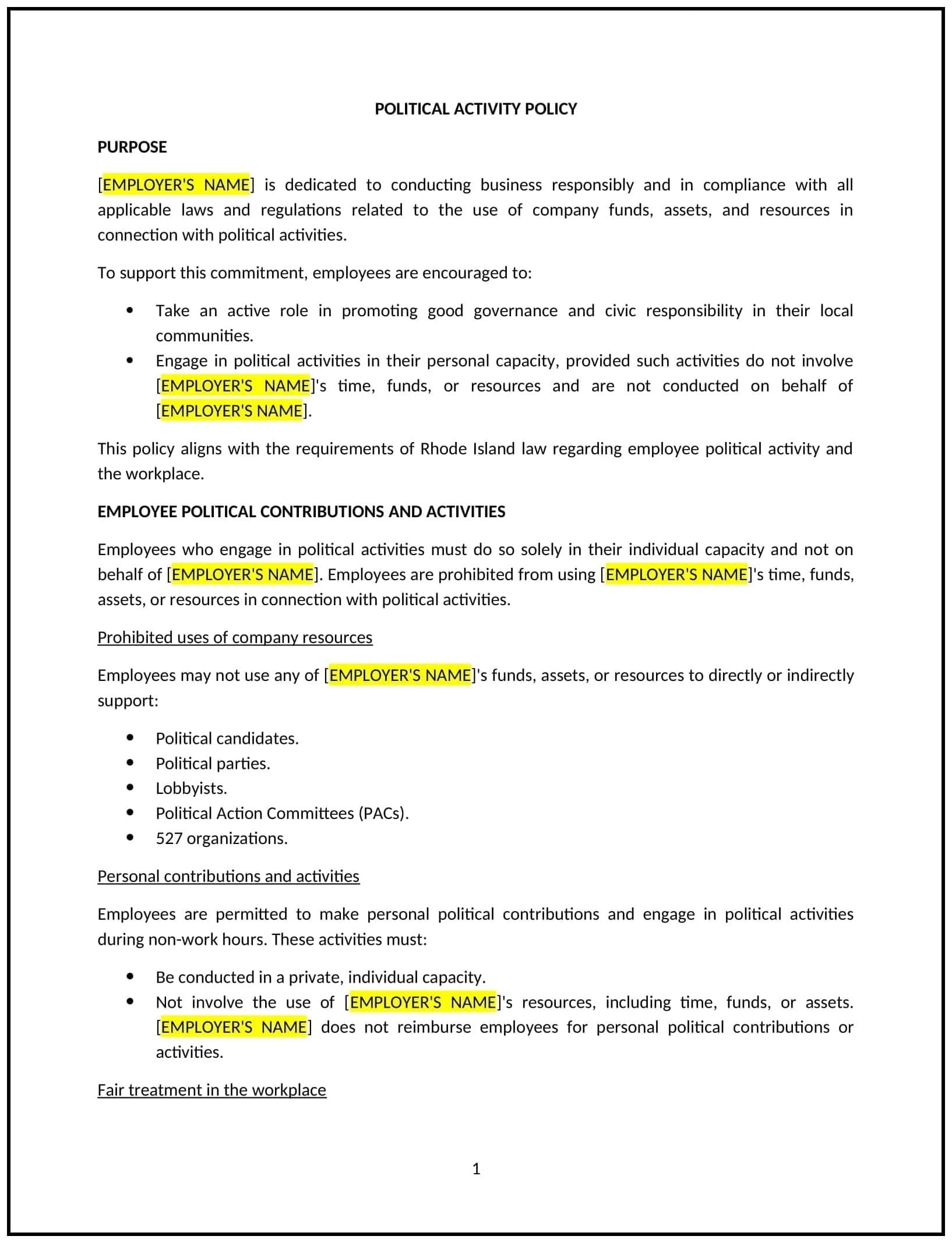Political activity policy (Rhode Island): Free template
Got contracts to review? While you're here for policies, let Cobrief make contract review effortless—start your free review now.

Customize this template for free
Political activity policy (Rhode Island)
This political activity policy is designed to help Rhode Island businesses establish guidelines for employee participation in political activities. It outlines procedures for balancing workplace neutrality with employees’ rights to engage in political expression.
By adopting this policy, businesses can maintain professionalism, reduce conflicts, and promote compliance with legal requirements.
How to use this political activity policy (Rhode Island)
- Define scope: Clarify which types of political activities are covered, such as campaigning, fundraising, or public office candidacy.
- Establish workplace neutrality: Outline guidelines for maintaining a neutral workplace, including restrictions on political discussions during work hours.
- Address off-duty activities: Specify employees’ rights to engage in political activities outside of work, as long as they do not represent the business.
- Set disclosure requirements: Explain how employees should disclose political activities that may conflict with their job responsibilities.
- Communicate expectations: Share the policy with employees and include it in the employee handbook.
- Train managers: Educate supervisors on handling political activity-related issues and maintaining workplace neutrality.
- Review and update: Assess the policy annually to ensure it aligns with evolving legal standards and business needs.
Benefits of using this political activity policy (Rhode Island)
This policy offers several advantages for Rhode Island businesses:
- Maintains professionalism: Ensures the workplace remains neutral and focused on business objectives.
- Reduces conflicts: Minimizes disputes or distractions related to political activities.
- Supports compliance: Aligns with Rhode Island labor laws and federal regulations, such as the National Labor Relations Act (NLRA).
- Enhances transparency: Communicates clear guidelines for political activities, reducing confusion or disputes.
- Builds trust: Demonstrates a commitment to respecting employees’ rights while maintaining workplace integrity.
Tips for using this political activity policy (Rhode Island)
- Communicate the policy: Share the policy with employees and include it in the employee handbook.
- Provide training: Educate managers on handling political activity-related issues and maintaining workplace neutrality.
- Monitor compliance: Regularly review political activity disclosures to ensure adherence to the policy.
- Address issues promptly: Take corrective action if political activities disrupt the workplace or violate the policy.
- Update regularly: Assess the policy annually to ensure it aligns with evolving legal standards and business needs.